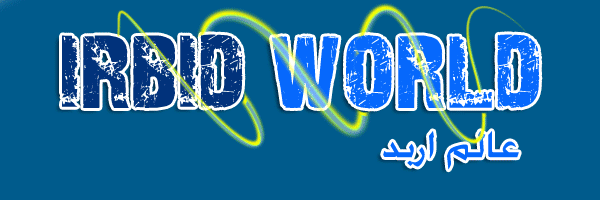|
| | Eid ul-Fitr |  |
| | | كاتب الموضوع | رسالة |
|---|
Princess

 |  موضوع: Eid ul-Fitr موضوع: Eid ul-Fitr  29/8/2011, 05:23 29/8/2011, 05:23 | |
| Eid ul-Fitr, Eid al-Fitr, Id-ul-Fitr, or Id al-Fitr (Arabic: عيد الفطر ‘Īdu l-Fiṭr), often abbreviated to Eid, is a Muslim holiday that marks the end of Ramadan, the Islamic holy month of fasting (sawm). Eid is an Arabic word meaning "festivity," while Fiṭr means "breaking (the fast)". The holiday celebrates the conclusion of the thirty days of dawn-to-sunset fasting during the entire month of Ramadan. The first day of Eid, therefore, falls on the first day of the month Shawwal.
Eid-ul-Fitr Salat (Namaz in Persian) is a Sunnah muak'kad (strongly recommended, just short of obligatory) or mandoob (preferable) – depending on which juristic opinion is followed – Islamic prayer consisting of two raka'ah (units)[1] which is generally offered in an open field or large hall called an Eed-gah. This salaat or prayer, can only be performed with Jama’at (i.e., in congregation) and has an additional extra six Takbirs (raising of the hands to the ears while saying Allahu Akbar (God is Great), three of them in the beginning of the first raka'ah and three of them just before ruku' in the second raka'ah in the Hanafi school.[2] Muslims are commanded by God in the Qur'an to complete their fast until the last day of Ramadan[3] and pay the Zakat al-fitr before doing the Eid prayer.
| |
|   | | Princess

 |  موضوع: رد: Eid ul-Fitr موضوع: رد: Eid ul-Fitr  29/8/2011, 05:23 29/8/2011, 05:23 | |
| History
Before the advent of Islam in Arabia, we find mention of ‘id festivals as yawm al-sab‘ and yawm al-sabasab as well as some others among the idolaters of Arabia. The shari‘ah of the Israelites had ‘id festivals as well but as is evident from the Old Testament and other scriptures, these festivals related more to commemorating certain days of their history. The ‘id al-fitr was originated by Prophet Muhammad and is observed on the first of the month of Shawwal right after the end of the holy month of Ramadan in which the believers undergo a period of fasting. [4]
Eid ul-Fitr is marked according to the Islamic calendar, which is based on the Lunar phases of the Moon.
It is evident from certain Ahadith that these festivals were initiated in Madinah after migration. Anas reports:
When the Prophet arrived in Madinah, he found people celebrating two specific days in which they used to entertain themselves by playing and merriment. He asked them about the nature of these festivities at which they replied that these days were occasions of fun and recreation of the days of jahilliyah. At this, the Prophet remarked that the Almighty has fixed two days [of festivity] instead of these for you which are better than these: ‘id al-fitr and ‘id al-adha [5]
For Muslims, both these festivals of ‘id al-fitr and ‘id al-adha are occasions of showing gratitude to God, remembering him and are a means of entertainment. ‘A’ishah narrates that when on an ‘id day her father Abu Bakr stopped young girls from singing, the Prophet said: Abu Bakr! [Let them sing]; every nation has an ‘id and [this day] is our ‘id. [6 | |
|   | | Princess

 |  موضوع: رد: Eid ul-Fitr موضوع: رد: Eid ul-Fitr  29/8/2011, 05:24 29/8/2011, 05:24 | |
| General rituals
See also: Eid cuisine
Muslims offer the Eid ul-Fitr prayers at respective Mosques at dawn.
Eid ul-Fitr is celebrated for two days. Common greetings during this holiday are the Arabic greeting ‘Eid Mubārak ("Blessed Eid") or ‘Eid Sa‘eed ("Happy Eid"). In addition, many countries have their own greetings based on local language and traditions – in Turkey, for example, a typical saying might be Bayramınız kutlu olsun or "May your Bayram – Eid – be blessed." Muslims are also encouraged on this day to forgive and forget any differences or past animosities that may have occurred with others during the year.
Typically, Muslims wake up relatively early in the morning—always before sunrise— offer Salatul Fajr (the pre-sunrise prayer), and in keeping with the Sunnah (traditions and actions of the Prophet Muhammad), clean one's teeth with a Miswaak or toothbrush, take a shower (Ghusul) before Fajr prayers, put on new clothes (or the best available), and apply perfume.[7]
It is haraam, or forbidden, to fast on the Day of Eid.[8] That is why it is recommended to have a small breakfast (as a sign of not being on a fast on that day) of sweet dish, preferably the date fruit, before attending the special Eid prayer (salaat). It is a Sunnah (Prophetic tradition) that the Sadaqat-ul-fitr, an obligatory charity, is paid to the poor and the needy before performing the ‘Eid prayer by all those adult Muslims who are required to pay Zakat.[9] Muslims recite the following Takbir (incantation) in the low voice while going to the Eid prayer: Allahu Akbar, Allahu Akbar, Allahu Akbar. Laa ilaaha ilal-lahu wal-Allahu Akbar, Allahu Akbar wa-lilla hil hamd.[10] Another Sunnah of Muhammad Muslims are recommended to use two separate routes to and from the prayer grounds.[11]
Eid prayer is performed in congregation in open areas like fields, community centers, etc. or at mosques. No adhan (Call to Prayer) or iqama (call) is to be pronounced for this Eid prayer, and it consists of only two rakaʿāt (units of prayer) with an additional six Takbirs. The Eid prayer is followed by the khutbah (sermon) and then a supplication (dua) asking for God's forgiveness, mercy, peace and blessings for all living beings across the world. The khutbah also instructs Muslims as to the performance of rituals of Eid, such as the zakat.[12] Listening to the khutbah (sermon) of Eid is a necessary requirement (wajib) i.e. while the khutbah is being delivered; it is haraam (prohibited) to talk, walk about or offer prayer while the sermon is being delivered.[13] After the prayers, Muslims visit their relatives, friends and acquaintances or hold large communal celebrations in homes, community centers or rented halls.
Gifts on eid (called eidi in some cultures) are frequently given to children and immediate relatives; it is also common in some cultures for children to be given small sums of money by adult relatives or friends(eidi). | |
|   | | Princess

 |  موضوع: رد: Eid ul-Fitr موضوع: رد: Eid ul-Fitr  29/8/2011, 05:25 29/8/2011, 05:25 | |
| Islamic Tradition
Many Muslims often bring prayer rugs to the Mosque on Eid ul-Fitr.
Eid ul-Fitr marks the end of the fasting month of Ramadan. This has to do with the communal aspects of the fast, which expresses many of the basic values of the Muslim community; i.e., empathy for the poor, charity, worship, steadfastness, patience etc. Fasting is also believed by some scholars to extol fundamental distinctions, lauding the power of the spiritual realm, while acknowledging the subordination of the physical realm. It also teaches a Muslim to stay away from wordly desires and to focus entirely on the Lord and thank him for his blessings. It is a rejuvenation of the religion and it creates a stronger bond between the Muslim and his Lord. After the end of Ramadan, is a big celebration of Eid.[14]
| |
|   | | | | Eid ul-Fitr |  |
|
مواضيع مماثلة |  |
|
| | صلاحيات هذا المنتدى: | لاتستطيع الرد على المواضيع في هذا المنتدى
| |
| |
| |





